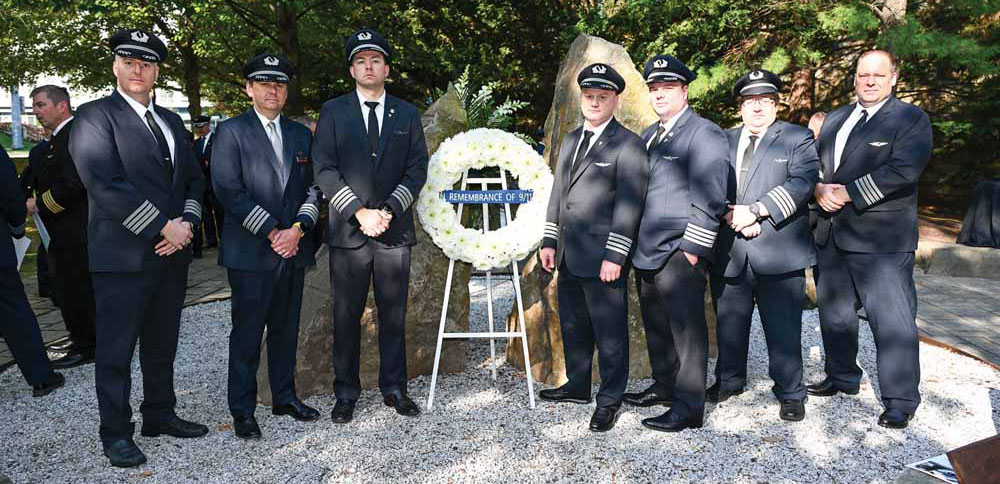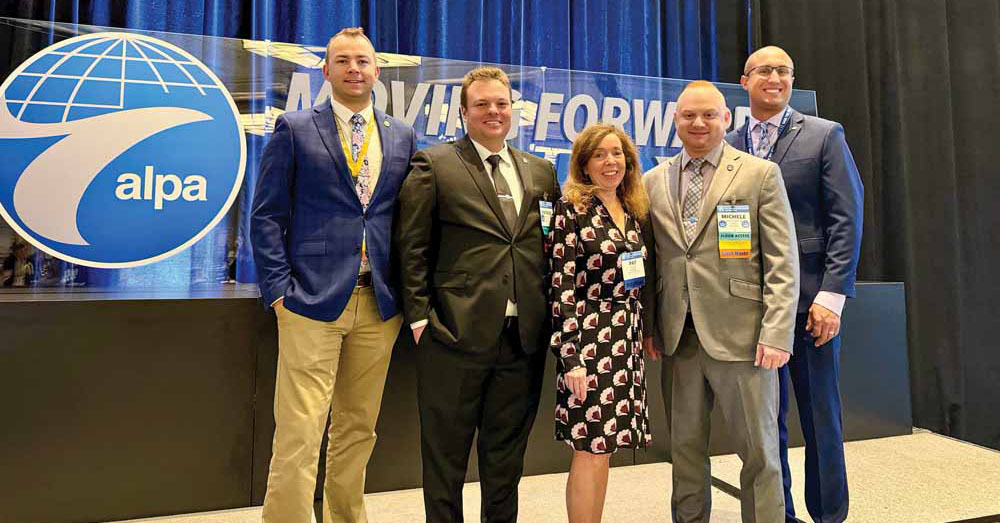Envoy Air

Envoy Air pilots gather at ALPA’s 2024 9/11 remembrance ceremony in McLean, Va. Photo: ALPA Staff
At A Glance
Pilots joined ALPA: 1995 (although Simmons had been an ALPA member since 1986, after the National Mediation Board’s ruling that the four airlines serving American Airlines—Executive, Flagship, Simmons, and Wings West—constituted a single airline, the American Eagle pilots established a single MEC). In 2014, the company name was changed from American Eagle to Envoy Air.
Number of pilots/flightcrew members: 2,208
Pilot bases: Dallas/Fort Worth, Tex.; Chicago, Ill.; Miami, Fla.; and Phoenix, Ariz.
Hubs/key markets: Dallas/Fort Worth, Tex.; Chicago, Ill.; Miami, Fla.; and Phoenix, Ariz.
Headquarters: Irving, Tex.
Operations: Envoy operates more than 700 daily flights to 170 destinations in the U.S., Canada, and Central and South America.
Fleet: 43 E170s and 140 E175s, plus 16 on order
Like many fee-for-departure carrier pilots, Envoy Air pilots may see the carrier as a step toward a mainline career or they’ve chosen to make the airline their career destination. The Envoy Master Executive Council (MEC) has made efforts to ensure that both paths are open to every pilot and to improve their quality of life while at the carrier.
“While some pilots are looking to flow up, it’s important that we build the resources within our pilot group so that we’re meeting the career goals of every pilot at Envoy,” said Capt. Jon Miranda, the pilots’ MEC chair. “We’ve been able to provide quality-of-life improvements as Envoy grows.”
Last September, the pilot group ratified a letter of agreement (LOA) that established the framework for the first preferential bidding system (PBS) on the property. This was preceded by a vigorous communications campaign about the agreement as well as informational sessions in each of the four domiciles. With 78 percent of the pilot group participating, 93 percent voted in favor of the agreement.
“This agreement not only established rules for the PBS at Envoy, it also protected quality-of-life improvements achieved in 2022. Many of these were contingent on the pilot group agreeing to the PBS,” Miranda noted. “It’s a testament to not only our unity, but also the strength of our communications during the ratification process that the pilot group understood the importance of the LOA.”


